That is one of many comments made. at the workshop "Lord Nguyen with the Southern land" organized by the Provincial People's Committee in coordination with the Vietnam Historical Science Association on the morning of June 3 in Hue City.
Attending the workshop were Member of the Provincial Party Committee, Permanent Vice Chairman of the Provincial People's Committee Nguyen Thanh Binh, Chairman of the Vietnam Historical Science Association Tran Duc Cuong, along with many experts and researchers from many provinces and cities across the country.
Speaking at the workshop, Permanent Vice Chairman of the Provincial People's Committee Nguyen Thanh Binh affirmed that Thua Thien Hue was the place where the Nguyen Lords established their capital for 150 years (1626 - 1775), which was the premise for later Bac Binh King Nguyen Hue - Emperor Quang Trung to choose as the capital (1786 - 1801) and Emperor Gia Long to build the Hue capital, which existed for nearly 150 years (1802 - 1945).
Phu Xuan under the Nguyen Lords was the first political center of Vietnam to extend its control over the eastern sea and islands, the southern territory and population. This included the vast land and sea in the south - a dynamic land of development, the initial driving force in the process of international integration and national unification.
Therefore, according to the Standing Vice Chairman of the Provincial People's Committee Nguyen Thanh Binh, research to clarify the historical issues of Lord Nguyen with the Southern land is an urgent task facing us, especially in the land of Thua Thien Hue - the place that contains the deepest memories of Lord Nguyen.
The Standing Vice Chairman of the Provincial People's Committee hopes that scientists and researchers will focus on discussing a number of issues related to the land of Thua Thien Hue and the South associated with the Nguyen Lords, Tay Son and Nguyen Dynasty to clarify historical values, and at the same time propose solutions to preserve and promote the cultural characteristics and heritage of the ancient capital of Hue.
At the conference, Associate Professor Dr. Do Bang, Vice President of the Vietnam Historical Science Association, in his summary, recalled that Dang Trong - Dang Ngoai was born during the Trinh - Nguyen war (1627-1672) and ended the year after Nguyen Hue commanded the Tay Son army to defeat the Siamese army - 1786, the year of destroying the Trinh lord, abolishing Dang Trong - Dang Ngoai, re-establishing the country's unity. Dang Trong has become a historical issue that many scholars at home and abroad have paid special attention to and have had important publications over the past half century.
According to Mr. Bang, looking back over the past half century, there have been hundreds of articles about Dang Trong and many books published at home and abroad focusing on the topic of Dang Trong history.
As the first person to present his speech, Dr. Phan Thanh Hai, Director of the Department of Culture and Sports, recalled the milestone of 1558, when Nguyen Hoang entered Thuan Hoa to defend it, he brought with him a rather powerful army including relatives, Thanh Hoa's brave soldiers, military generals such as Van Nham, Thach Xuyen, Tien Trung, Tuong Loc and more than 1,000 navy soldiers. This was the core force of the Tien Lord's army in the early days.
Nguyen Hoang gradually organized and developed the army in a systematic way to protect the new land, but first of all, he focused on winning the hearts of the people and using the strength of the soldiers to defend many key positions in Thuan Hoa, and then Thuan Quang. In particular, he paid attention to developing to the east, towards the sea to conquer and establish sovereignty over the coastal islands and towards the two archipelagos of Hoang Sa and Truong Sa. Nguyen Hoang himself, when he entered to receive the land of Thuan Hoa (1558) and also when he returned to Thuan Hoa later (1570, 1600), used the sea route, so he clearly understood the important role of sea traffic routes and the importance of defending the seaports.
Therefore, Nguyen Hoang not only focused on building and developing the navy, but also strengthened the defense of key seaports, and paid attention to preventing and destroying pirates. "In the turbulent context of Vietnamese society in the late 16th and early 17th centuries, Nguyen Hoang emerged as a special figure. He was the one who made great contributions in stabilizing and developing the Thuan Quang region in all aspects, expanding the territory to the south, laying the foundation for the birth of Dang Trong", Mr. Hai commented.
According to Mr. Hai, after entering Thuan Hoa and then Thuan Quang, Nguyen Hoang organized the government apparatus and issued and implemented appropriate governing policies, including politics, economics, culture and society. That fundamentally changed Thuan Quang in all areas. This was the foundation for the Nguyen lords to later implement an independent policy with Dang Ngoai, dominate and expand the Southern land, creating great changes in the development of the history of the Vietnamese nation.
MSc. Do Kim Truong, Dong Thap Historical Science Association, said that in the Nguyen Lord's journey to open up the country, there were great contributions from civil and military officials. Names such as Nguyen Huu Canh, Nguyen Cuu Van, Nguyen Cuu Dam, Mac Cuu, Nguyen Cu Trinh, Nguyen Van Tuyen... According to Mr. Truong, these historical figures were both generals assigned by the court to fight against foreign invaders and protect the country's sovereignty, and were also land envoys, irrigation engineers, early urban architects, and cultural figures.
“Through their activities, national security is ensured, people’s lives are stable and developed, and harmonious diplomatic relations with neighboring countries are established. History is a stream that carries traditional national values, built with the joint efforts of the people and outstanding individuals, to be passed on to future generations,” Mr. Truong affirmed.
Also at this conference, there were many presentations by experts, scientists, and researchers on the role of Lord Nguyen in the Southern region such as land opening, government building; the process of establishing sovereignty, exploiting seas and islands; urban economic development; cultural life, foreign affairs; historical figures, etc.
N. MINH
Source







![[Photo] Opening of the 14th Conference of the 13th Party Central Committee](https://vphoto.vietnam.vn/thumb/1200x675/vietnam/resource/IMAGE/2025/11/05/1762310995216_a5-bnd-5742-5255-jpg.webp)





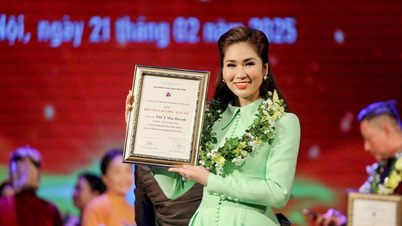

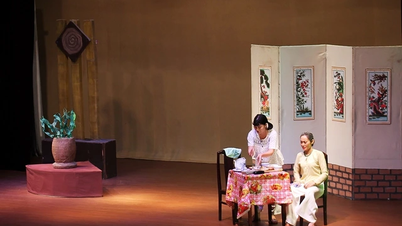




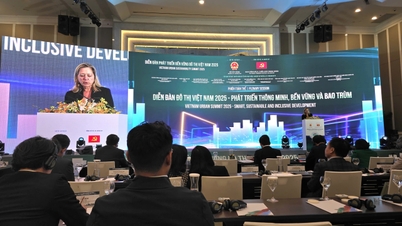
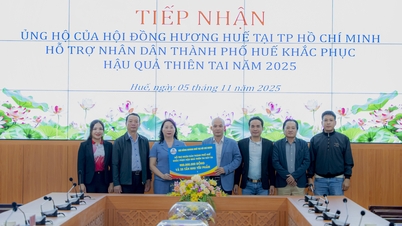
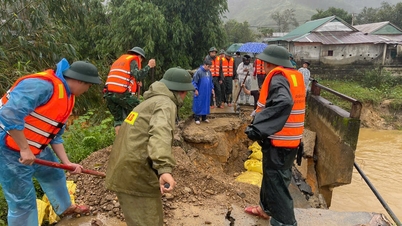
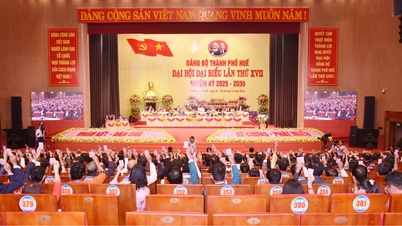

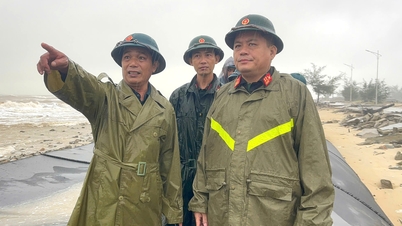
![[Photo] Panorama of the Patriotic Emulation Congress of Nhan Dan Newspaper for the period 2025-2030](https://vphoto.vietnam.vn/thumb/1200x675/vietnam/resource/IMAGE/2025/11/04/1762252775462_ndo_br_dhthiduayeuncbaond-6125-jpg.webp)




































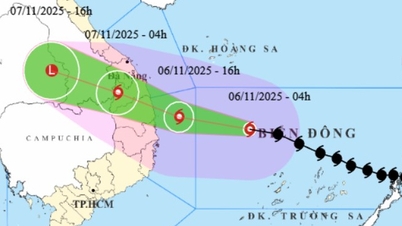


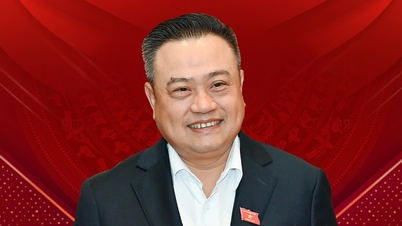

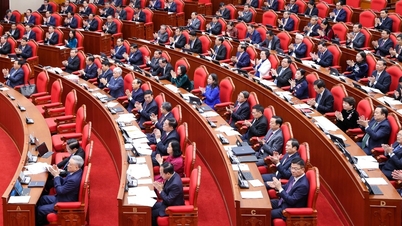
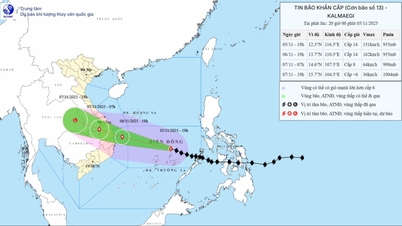









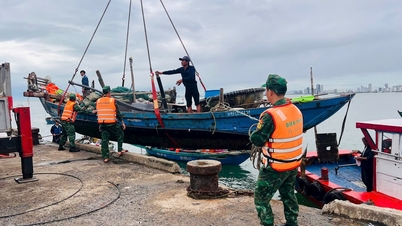

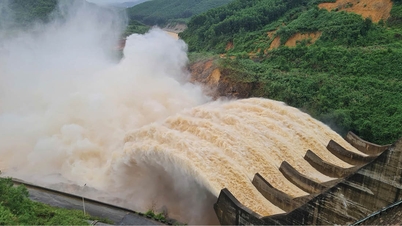
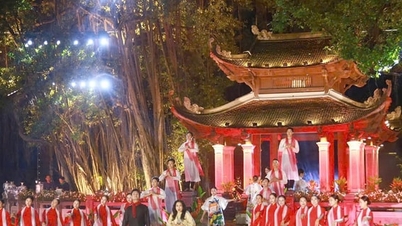

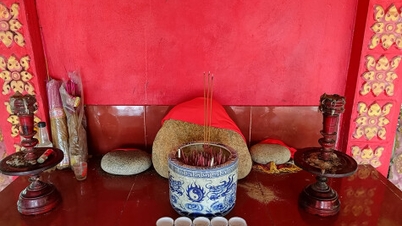

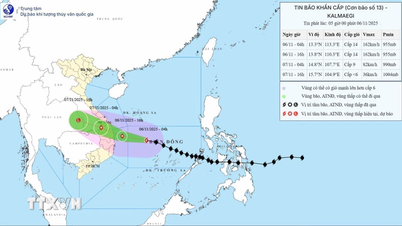

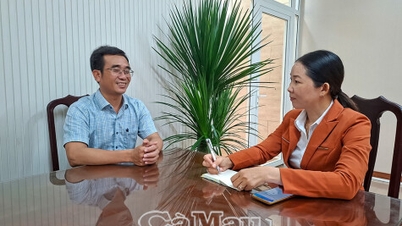














Comment (0)